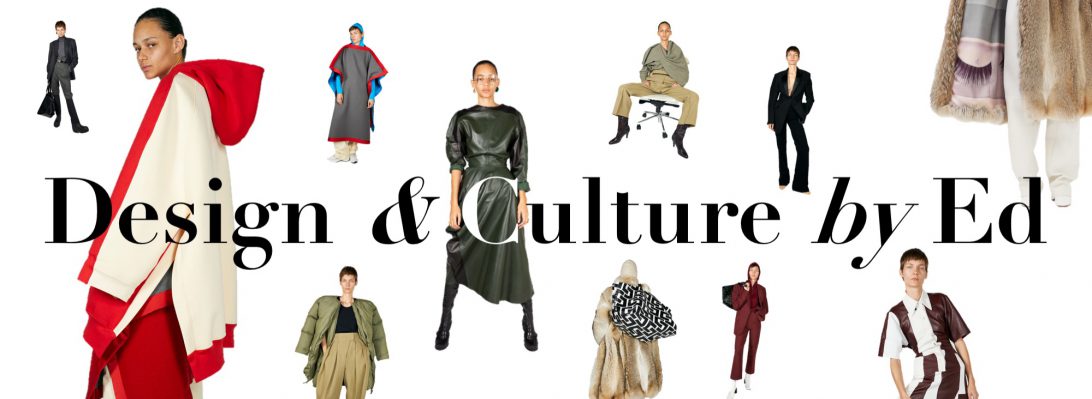Storm Eunice disturbed the first days of London Fashion Week, and went on, wrecking havoc in the rest of Europe. Matty Bovan‘s nomads, wearing layers of fleecy knits, table-cloth prints and hand-painted outerwear, made sense amidst the disturbing weather conditions. Aptly, he titled his collection Cyclone: a force that causes “chaos and destruction – even beauty – in the wake of its power.” He was talking about the pandemic, but you could say the same for the organized chaos that embodies his work. Some find it messy, others soulful. This season, it was punk for the globalized generations: the kids who have grown up as immersed in other cultures as in their own and feel a need to rebel against said cultures’ symbols of patriotism. Enter America, a place that has so many cultural divisions which all lay claim to its national iconography that those symbols have become universal. “They’re very fun to subvert. Like England, they don’t really belong to anyone,” he shrugged. The Yorkshire-based designer was wearing a Carrie Bradshaw-style necklace with the name Derek on it in homage to his American musician boyfriend, who spends part of his work researching undiscovered folklore music from America. Together, they spent two months in his hometown of Bridgewater, Connecticut this season where Bovan found inspiration for his first collection based on American culture. “I’ve looked at England for so long, I needed to look at something else. America is very easily parodied and there’s a lot of iconic symbols – the star, the stripe – which I like to play with.” As far as American socio-political commentary goes, his collection didn’t escape cliché territory. But that didn’t make it any less captivating. Within the ripped-up sensibility of Bovan’s work his various treatments of the American flag – hand-painted on jeans, as a train on a jacket, as star cut-outs queerly stitched all over a dress with a naval military cape – very much read as punk. As did a series of repurposed classics from collaborations including Vivienne Westwood, Adidas, Converse All-Star, Alpha Industries, and Calvin Klein (as for footwear, Diemme provided boots for many of the looks which Matty customised for the collection). The feeling was echoed in the de- and reconstruction of bomber jackets and parkas – some spliced together – and a beautiful hand-painted blouson with the words “Hopeful” and “Bad Dreams” spelled out within its abstract motif. But the political element here was above all in the casting. Not in Irina Shayk, who opened and closed the show, but in all the bulky frames that followed. Through a conventional lens, these bodies read as masculine. Dressed in Bovan’s genderless garments, which traverse the body-conscious and the dramatically draped, they came across as an interesting comment on male roles from an American perspective.

Collage by Edward Kanarecki.





